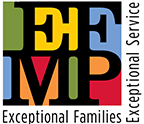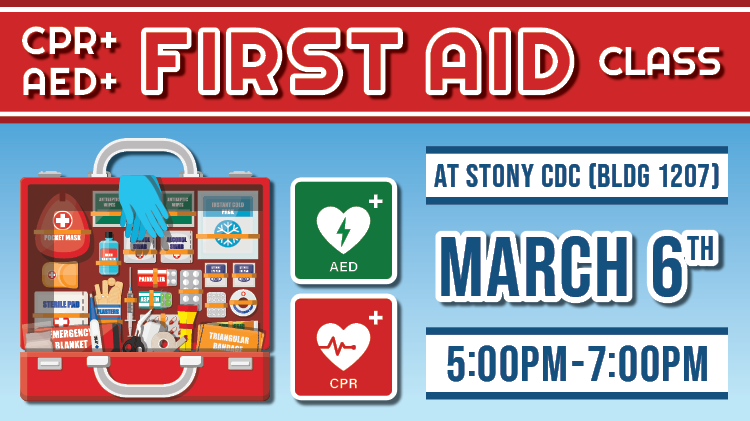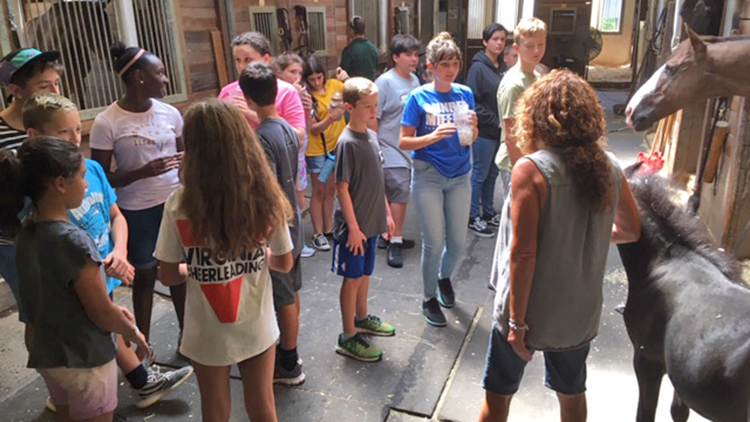- Helping schools understand the challenges military Families face
- Informing parents about local school policies
- Giving Families information about local schools, graduation requirements, after school programs, youth sponsorship and homeschooling
- Connecting units and schools through partnership initiatives
- Conducting workshops to help parents navigate educational transition and advocate for their children
- Providing an array of resources that benefit military youth and improve school experiences
- When Do I Need a SLO?
-
Getting ready to move:
- Information about your upcoming duty station and educational options in your new community
- Connection to a youth sponsor who can answer your child’s questions from a youth’s perspective
- Assistance with the steps to prepare for your children’s departure from their current schools
Once you arrive:
- Assistance with school registration and transition
- Help with questions about compliance and solutions regarding the Interstate Compact on Educational Opportunity for Military Children
- Two way communication between the school and parent
- Connection with homeschool co-ops or support groups
During your assignment:
- Answers to your questions about schools, homeschooling, special education, scholarships, transitions and more.
- Parent education opportunities about college and career readiness, preparing for transition and the Interstate Compact
To ease the transition, contact your SLO as soon as you get orders.
- Build relationships and facilitate communication among Army Families and the local school community.
- Inform and assist parents with school transitions and deployment challenges.
- Establish school and community partnerships.
- Facilitate access to home school resources for parents.
- Provide information about college and other post-secondary opportunities and preparation materials.
- Inform and assist parents on youth education and school issues.
- Finding a School
-
Finding a new school and registering your child can be confusing.
We can help.
Our SLOs give you information on local schools so you can find the best fit for you and your family. They can also help you with everything you need to register – and can answer other questions, too. Contact our office and to get more detailed information.
Research-based Characteristics of Quality Schools
Most schools share fundamental characteristics that prepare students for the future. Research shows that the most effective schools are more alike than they are different. Here is some information about what to look for in quality schools:
- Nine Characteristics of High Performing Schools
- Evidence-Based Practices at School: A Guide for Parents
- What is Evidence based research?
New York State School Statistics
The New York State Education Department hosts a website with the statistical report card for every school district in the state. For more information about the schools in our area, please visit the NY State School District Report Card.Students living off the installation in Highland Falls/Fort Montgomery attend the Highland Falls-Fort Montgomery Central School District (HFFMCSD.) Additionally, high school students living on West Point attend James I. O’Neill in Highland Falls. For HFFMCSD schools’ report cards visit HFFMCSD Report Cards.
- Local School Information
-
Local School Information
The Interstate Compact on Educational Opportunity for Military Children/New York
In 2014, the State of New York adopted the Interstate Compact on Educational Opportunity for Military Children (the Compact) into law. The Compact addresses the challenges facing military children as a result of their frequent relocations. It establishes a framework for uniform treatment of military children as they transfer between school districts and states. The compact outlines the requirements that school districts must adhere to when enrolling and educating children of active duty military personnel.
- Interstate Compact/New York
- Interstate Compact New York FAQ's
- West Point Elementary School
- West Point Middle School
- Highland Falls-Fort Montgomery Central School District
- James I. O'Neill High School
- Orange County Schools Page
- Local School Summary
Registration Requirements
- Birth Certificate
- Immunization records (Interstate Compact authorizes military connected students 30 days to provide, if they are not available at the time of registration.
- Copy of child's physical exam (NYS schools) -Proof of Residency (NYS schools), 3 forms of proof of residency are required (such as utility bill, phone bill, lease or paystub).
- Lease Agreement (DoDEA) - includes James I. O'Neill HS if residing in on-base housing.
- Copy of CURRENT orders OR Copy of student military ID (front only) OR DA 3434 OR SF50 (DoDEA)- includes James I. O'Neill HS if residing in on-base housing.
- Custody or guardian papers filed through the court (if applicable).
Prekindergarten/Kindergarten
DDESS (West Point Elementary School)
- The student must be 4 years of age by 1 September of the academic year he/she is enrolling, to start Prekindergarten. PreK is a full day program.
- The student must be 5 years of age by 1 September of the academic year he/she is enrolling, to start kindergarten. Kindergarten is a full day program.
New York State Education Department
- The student must be 4 years of age by 1 December of the academic year he/she is enrolling, to start Prekindergarten. NYS does not mandate PreK, contact your school district office.
- The student must be 5 years of age by 1 December of the academic year he/she is enrolling, to start kindergarten.
- According to The Interstate Compact on Educational Opportunity for Military Children, The student shall be allowed to continue their enrollment at grade level in the receiving state, commensurate with their grade level (including Kindergarten) from a local education agency (LEA) in the sending state, at the time of transition, regardless of age. In the case of a Kindergarten student, the student must have been enrolled and attended class in the sending state in order to assure continued attendance in Kindergarten in the receiving state. A student that has satisfactorily completed the prerequisite grade level at the LEA in the sending state, shall be eligible for enrollment in the next highest grade level in the receiving state, regardless of age.
- Special Education Information
-
If you have a child with special needs, we can help you find information about the resources available in your school district. We can also help you connect with your local installation’s Exceptional Family Member Program (EFMP) office. The EFMP is a mandatory enrollment program that works with other military and civilian agencies to provide comprehensive, coordinated, community support in areas such as housing, medical, educational and personal services to Families with special needs.

- Transferring with an IEP?
-
When transferring with an individualized education program, the new school is required to provide a free appropriate public education. This includes providing comparable services to those available through the current IEP. While the Individuals with Disabilities Education Act requires that the new school provide services, it does not require that the services at the new location be exactly the same as those provided by the previous school. Comparable services are services that are similar or equivalent to those outlined on the incoming IEP. The flexibility in the phrase "comparable services" allows the school to determine how best to provide a FAPE using the previous IEP as a guide to the needs of the child.
- Home School
-
Home schooling has become mainstream and widely-used. We offer resources and information to help you provide quality home-based education.
Home School Legal Defense Association provides information on home school law, and general support and information about homeschooling.
Home Schooling
National Home Education Network
New York Home Educators' Network
About.Com Home Schooling
Home Schooling Central - In/Out Processing
-
In/Out Processing
Per AR 600-8-101, all Soldiers with accompanying children/youth (from infant to age 18) will in and out process through CYS/School Support Services for an explanation of the services of the School Liaison Officer.
Are you Out Processing soon? Here are some helpful tips.
Contact gaining school counselor for information regarding student records, transfer credits, regulations, and placement. Have students most recent school records, separated by student. Please do not pack your child's school record with your house hold goods. Records should include: report cards, transcripts, special needs documents, shot records. Have address, phone and fax number of current school or alternate location if school has closed, as well as same information for new school, if determined before departure. Give current school adequate notice of your departure & formally process out of current school. Deliver all hand carried records to gaining school according to school policy & provide gaining school with previous school information so that records can be requested. - Transition Support
-
We understand that military transitions for children include much more than school plans and enrollment. We have a number of resources to help make your move as easy as possible for the kids, including:
Military Child Education Coalition (MCEC): provides support for military-connected children to resolve education challenges associated with military lifestyle..
The Interstate Compact on Educational Opportunity for Military Children (MIC3) addresses key transition issues military Families experience, including enrollment, placement, attendance, eligibility and graduation. All 50 states have signed the compact and are in varying stages of implementation and/or compliance. The compact applies to children of Active Duty service members, National Guard and Reserve members on active duty orders and members or veterans who are medically discharged or retired within past year.
If you feel that you have an issue that the Compact can help address talk with your SLO. The SLO is able to assist by connecting with both the sending and receiving school to assist in resolving the issue. If it is not possible to resolve the issue locally, the SLO will help you work with the state commission, and if needed, the national office.
Youth Sponsorship
The Youth Sponsorship Program is designed to help newly arriving youth become familiar with the West Point community, schools, local towns, and the surrounding region. Tours, monthly Hail and Farewell parties and other special events are just a few examples of the ways for our youth to participate, meet new people, and do exciting activities.
Interested Families can request a Youth Sponsor by filling out the Information Sheet and emailing it to the School Liaison Officer.
By emailing it to the above address, the application will be forwarded to the West Point Youth Programs Director, who will contact you reference connecting your child to a local sponsor. For more information, call the CYS Middle School & Teen Center at +1 (845)938- 3727 or the West Point School Liaison Officer at +1 (845)938-2092.
For questions about the Youth Sponsorship Program, email WestPointcys_youthsponsorship@army.mil
- Post-Secondary Support
-
Our support doesn’t end with elementary education. If you have children preparing for academic life after high school, we can help you find information about testing opportunities, scholarships and military-specific resources that can help you plan.
- Military-Specific and Government Academic Support information; G.I. Bill
Transferability of Educational Benefits
In-State Tuition Programs for Military: Service members on active duty for a period of more than thirty days and their dependents are eligible to receive in-state tuition at many public colleges and universities in the state where they reside or are permanently stationed. An enrolled dependent may pay in-state tuition as long as he or she remains continuously enrolled at the institution, even if the service member is reassigned outside of the state. Regulations outlined in the Higher Education Opportunity Act, 2008 (P.L 110 - 135) and the Higher Education Act of 1965 apply.College and Career Readiness:
College and career readiness includes the content knowledge, skills and habits that students must have to be successful in post-secondary education. It also includes training that leads to a sustaining career. A student who is ready for college and career can qualify for and succeed in entry-level, credit-bearing college courses without needing remedial or developmental coursework.Let us help you plan for your child’s college and career readiness:
- College Preparation Resources
-
Getting ready for college means planning for the future and making some very important decisions. While there are endless search engines to help you in your endeavors below is a list of a few that you may find helpful.
• College Week Live – Join hundreds of colleges and universities from around the world. Watch application and admissions experts speak on a variety of topics, video chat with college students, visit virtual booths, real-time interactive Q&A with admissions officials, and more.
• The Princeton Review.Com – Explore colleges, careers and majors. Let the website find a college for you based on your profile (location, size, major, etc)
• My College Guide – Looking for the right college, want information about career choices, want to learn more about the admissions process?
• Schools in the USA – View schools across the U.S. in one convenient, easy to use location. Compare criteria, including tuition costs, location, admission requirements, program start
dates and more.
• In State Tuition – MilitaryHOMEFRONT is sending this special announcement to bring you up-to-date on the latest information available to troops and families, leaders, and service providers. Please share it with your families, staff, and coworkers! - Scholarship Information
-
The below links are for additional scholarship information.
Scholarships for Military Connected Families
• Fisher House Foundation Scholarship Programs
If you are planning on attending a four-year college and are interested in receiving a tuition scholarship along with some of the best leadership training available, an ROTC scholarship may be right for you.
• Army ROTC Scholarships
• Air Force ROTC Scholarships
• Navy NROTC Scholarships
• www.marines.com
Scholarships for Military Children/Commissaries
• www.militarysholar.org
You will find many scholarships offered by each branch of the military and military affiliated organizations.
• www.mcsf.org
• www.afas.org
• www.moaa.org
Special educational benefits and aid are available for veterans and their dependents.
National and Federal aid is available through organizations such as DoDEA, the Department of Education and others.
•http://www.ed.gov/(If accessing PDF from government computer, "right click, save as")
- Additional Helpful Resources
-
West Point Child and Youth Services:
CYS Connections (West Point CYS Newsletter):
- January - March 2024 Edition
- April - June 2024 Edition
- July - September 2024 Edition
- October - December 2024 Edition
For more CYS information visit:
Stony CDC / School Age Center | Parent Outreach Services | Middle School Teen Center
- Frequently Asked Questions
-
(If accessing PDF from government computer, "right click, save as")
What is a Unique Military Child Identifier? Numerous states have enacted a voluntary report-only self-identification of military children within their public school systems. This data collection would allow monitoring of critical elements such as academic progress and proficiency, special and advanced program participation, mobility and dropout rates. Requirements and method of collection vary from state to state.
Impact Aid
Many local school districts across the United States include within their boundaries parcels of land that are owned by the Federal Government. They must provide a quality education to the children living on the Indian and other Federal lands while sometimes operating with less local revenue than is available to other school districts, because the Federal property is exempt from local property taxes.
Congress has provided financial assistance to these local school districts through the Impact Aid Program. Each year Military members and Federal employees complete a Survey Form. The amount of Impact Aid – or federal assistance –received is determined by the number of eligible parents/guardians who complete the survey form. It partially compensates school districts affected by federal activity for local tax losses resulting from tax-free federal installations.
School Support Services provides Army school-aged youth with educational opportunities, resources and information necessary to achieve academic success. A branch of Child & Youth Services (CYS), School Support Services features School Liaison Officers (SLOs), who help schools, installations and Families work together for student achievement.
SLOs are your best support in the area of education, schools and military transitions. SLOs are knowledgeable in current education news and policies. They act as the conduit between the school community – including local public school districts, private schools and home school Families – and the installation.
How do they do it? By
Click on the video below to find out even more about School Liaison Officers (SLO). The Facebook Live event was presented by Military OneSource featuring a panel of School Liaison experts from each Service, explaining the benefits of the School Liaison program!
We want to hear from you! Leave us your feedback via ICE!










